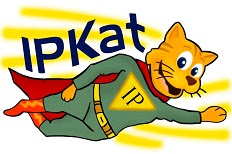 Writing for International Law Office ("Compulsory licences for medicines"), Santiago R Bustamante of Tobar & Bustamante Abogados explains that, last November, Ecuador's President Rafael Correa issued Decree 118: this declares that it is in the public interest to have access to medicines used for the treatment of illnesses affecting the Ecuadorian people. The decree was drawn up in response to the suffering endured by people in various areas of Ecuador (in particular in its tropical regions) following severe outbreaks of mosquito-borne dengue fever and other diseases. But what is the legal basis of the decree?
Writing for International Law Office ("Compulsory licences for medicines"), Santiago R Bustamante of Tobar & Bustamante Abogados explains that, last November, Ecuador's President Rafael Correa issued Decree 118: this declares that it is in the public interest to have access to medicines used for the treatment of illnesses affecting the Ecuadorian people. The decree was drawn up in response to the suffering endured by people in various areas of Ecuador (in particular in its tropical regions) following severe outbreaks of mosquito-borne dengue fever and other diseases. But what is the legal basis of the decree?
The country's Intellectual Property Institute has now issued an Instruction on the Granting of Compulsory Licences for Patented Drugs, in accordance with local IP legislation and is open to receive applications for the grant of compulsory licences, whether for commercial or non-commercial public use. It is for the applicant to show that the product or medicine which it will produce or import is primarily intended for supply within the domestic market. In the case of"Article 32 of the Constitution, which establishes that health is a right guaranteed by the state;
Article 31 of the Agreement on Trade-Related Aspects of Intellectual Property Rights (TRIPS), which recognizes the right of countries to grant compulsory licences for patented medicines in order to combat and mitigate the effects of illnesses;
and the Doha Declaration regarding the TRIPS Agreement and public health, which states that each World Trade Organization member state "has the right to grant compulsory licences and the freedom to determine the bases upon which such licences may be granted".
an application for commercial public use, the applicant must show that it tried to obtain authorization from the rights holder on "commercially reasonable terms and conditions" and that a favourable response was not obtained within a period of 45 days.
For further details, please refer to the article.













